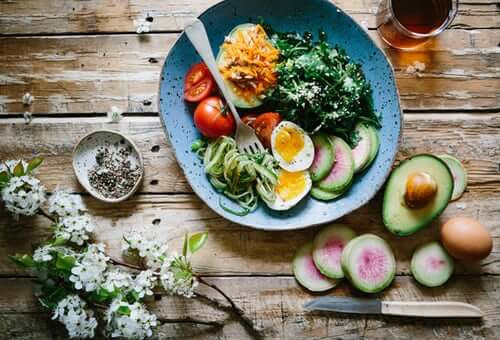
By Ric Coggins
Our immune system exists to protect us from things that would cause us harm. I contracted cancer when my immune system finally could not keep up with the load that I had been piling on it for more than 60 years. I was actually amazed that it held up as long as it did when I learned about the impact of diet and environmental toxins.
Those of you who have followed my story know that I was able to beat my cancer by restoring my immune system so that it could do the job it was always intended to do. I did this by first removing the things in my diet and lifestyle which taxed my immune system and secondly by adding back in things to enhance it.
Your Immune System
But just what is our immune system? A couple of years ago I would have told you it had something to do with white blood cells that came from somewhere in our bone marrow. That much is technically true, but it turns out that’s only a small part of it. Science today is learning that as much as 80 percent of our immune function capacity resides in our gut.
Rolled out flat, the human gut surface area measures about the same as a regulation tennis court. It makes sense that our immune system would set up its first lines of defense along the gastrointestinal tract. After all, the GI “tube” is a path by which things from the outside world enter our mouth seeking access to our inside world. It is at this tubular “border crossing” that our immune system places the bulk of our soldier cells, who do their best to identify and turn away pathogens.
What Exactly is Your Microbiome?
Recent advances in medicine indicate that we have more than just our own immune soldier cells guarding the gate. In fact, our own cells are significantly outnumbered by “mercenaries” which have taken up residence in our intestinal tract. Reflecting a notable degree of coevolution, some one hundred trillion organisms, consisting mainly of bacteria and yeasts, collectively comprise what is referred to as the gut microbiome. Some studies indicate that for every 100,000 of our own cells, we are aided by as many as 1,000,000 of these mercenaries called probiotics. In a perfect natural balance, the hundreds of varieties of good bacteria perform many duties, including the stimulation of additional white cell production. Unfortunately, there is little “natural balance” left in the world today and this extends to most people’s gut biomes.
The Golden Age of Antibiotics
The “Golden Age of Antibiotics,” beginning in the late 1920s, saw the liberal application of antibacterial drugs, first on people and then into the barnyard. Well-meaning medical professionals, unaware that the gut biome even existed as we understand it today, prescribed antibiotics for nearly everything. We are just learning today that antibiotics hit their intended target bacteria, but they also do considerable collateral damage to the bacteria of the gut biome. Also, more than 70 percent of all antibiotics made today are fed to animals raised for food production. Antibiotics administered to cattle and chickens later show up in the meat, poultry, and dairy that people eat, adding to the stress on our gut. Even city water supplies are now testing positive for prescription antibiotics.
Factors That Cause Pressure on the Gut
Also causing pressure on the gut biome are GMO foods, herbicides, and pesticides found in standard American foods. Making this point, Dr. Edward Group III of The Global Healing Center relayed a study where participants ate only food from McDonald’s for a period of 10 days. At the end of the study, more than 40 percent of the varieties of the participants’ gut bacteria had been completely lost.
So how do we restore our gut biome?
The first step is to avoid taking prescription and over-the-counter drugs, whenever possible. If you must take them for health reasons, avoid eating non-organic foods that contain additional toxins and other “secondhand” antibiotics.
Eat foods that are rich in probiotics. Live fermented foods (not canned) like sauerkraut, pickled items and kombucha contain amazing amounts of good bacteria. Avoid microwaved foods, in that microwaves destroy any probiotics that may naturally occur.
If you have to take an antibiotic, consider taking a daily probiotic supplement AFTER you’ve completed your prescription. The best probiotic supplements consist of billions of live bacteria to help restore your biotic gut balance. Do your research here, as some are significantly better than others.
More than 2,000 years ago, the Greek physician Hippocrates, referred to as “The Father of Western Medicine,” taught that “All disease begins in the gut.” Perhaps he already knew about the microbiome!
Ric Coggins is a University of Arizona Master Gardener who grew up on a one-acre garden tended by his father, who was a regular contributor to Mother Earth News and Organic Gardening and Farming magazines. Ric continues his father’s “green” traditions on a one-acre organic garden urban homestead in Mesa he calls The Fool on the Hill Farm.






